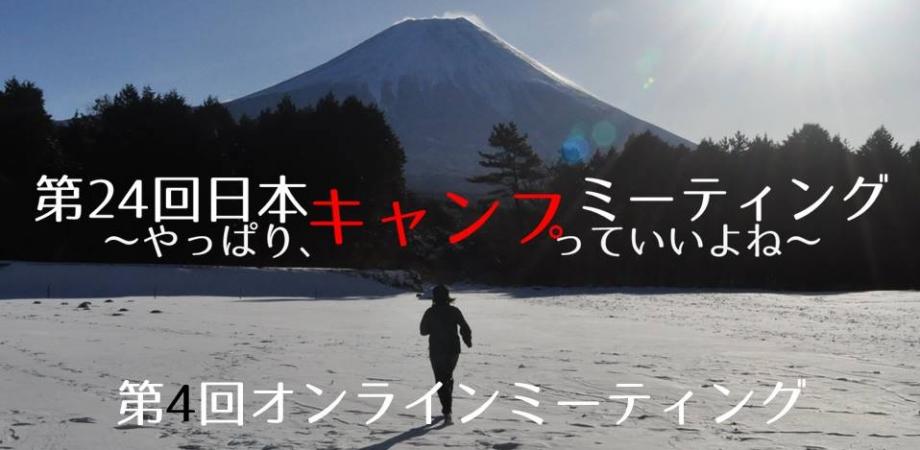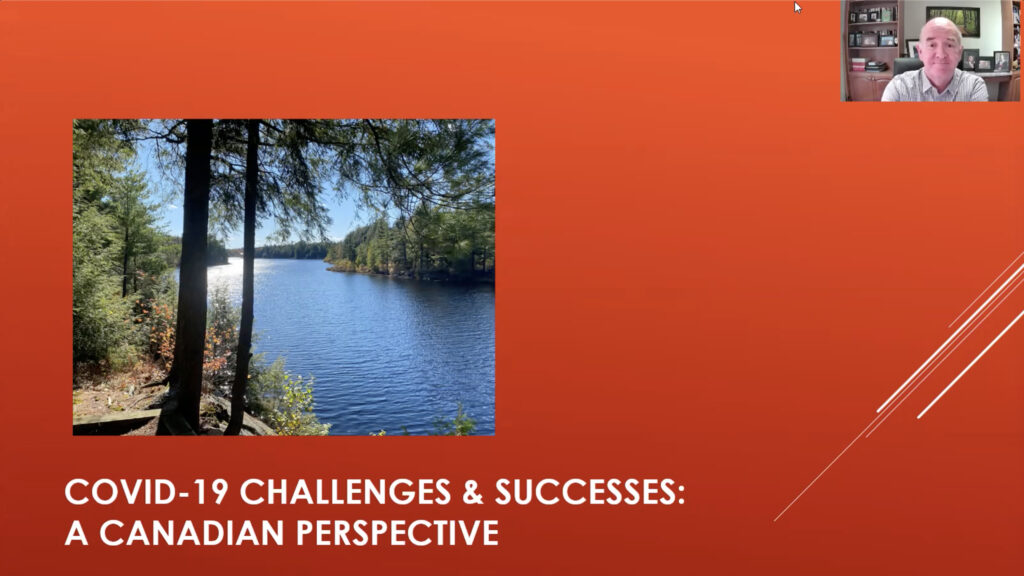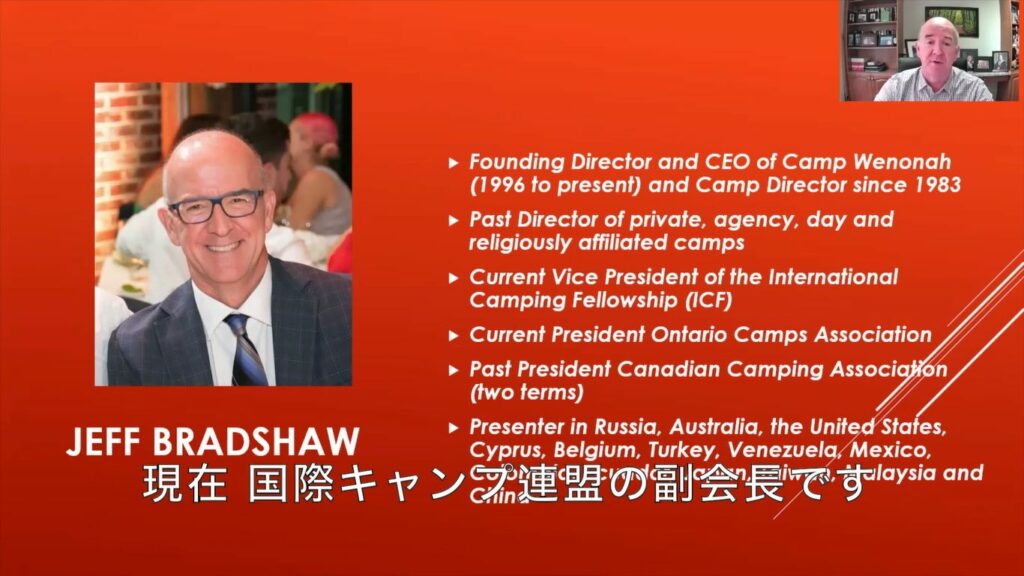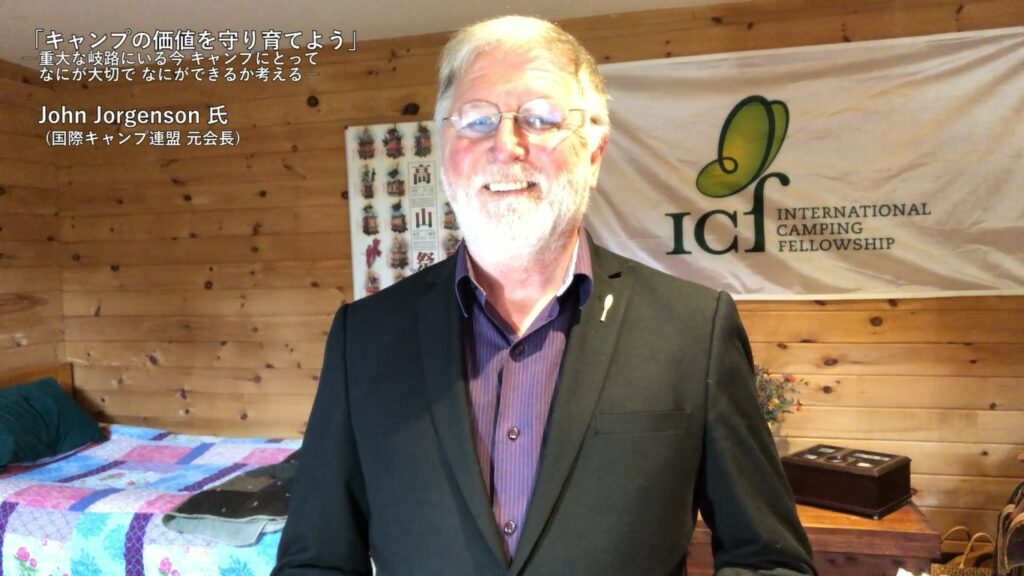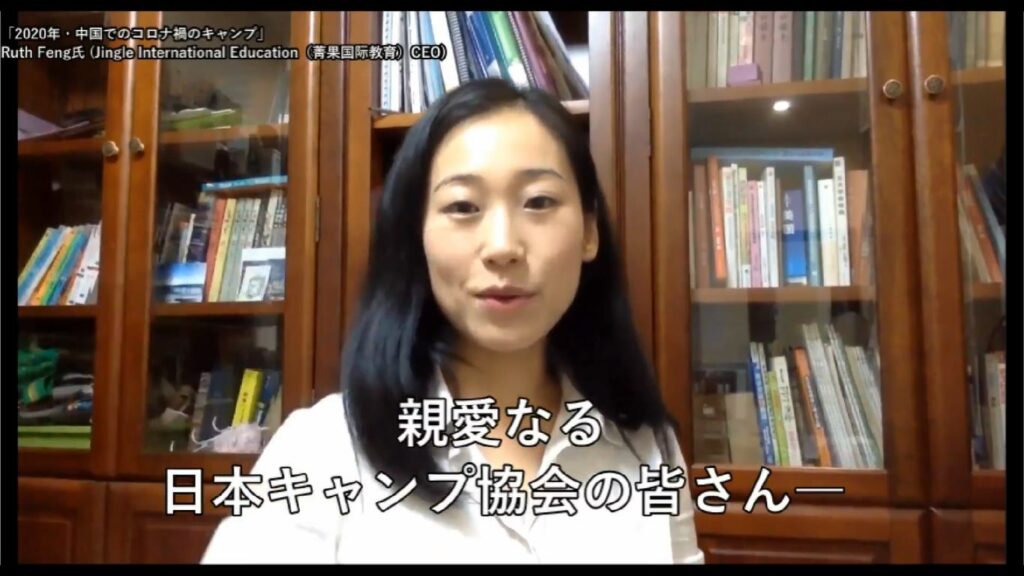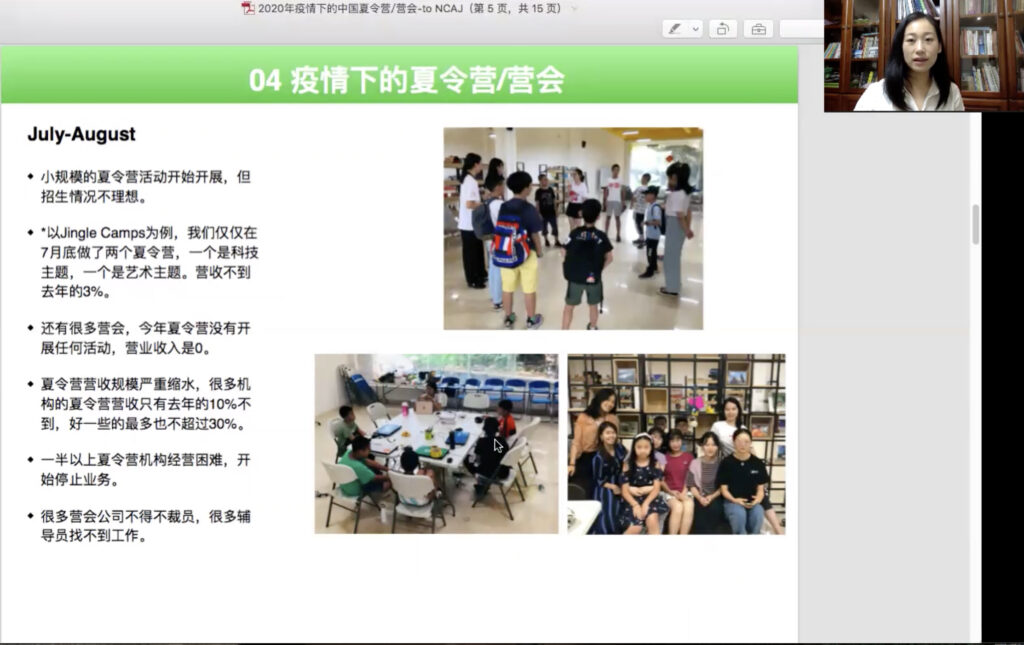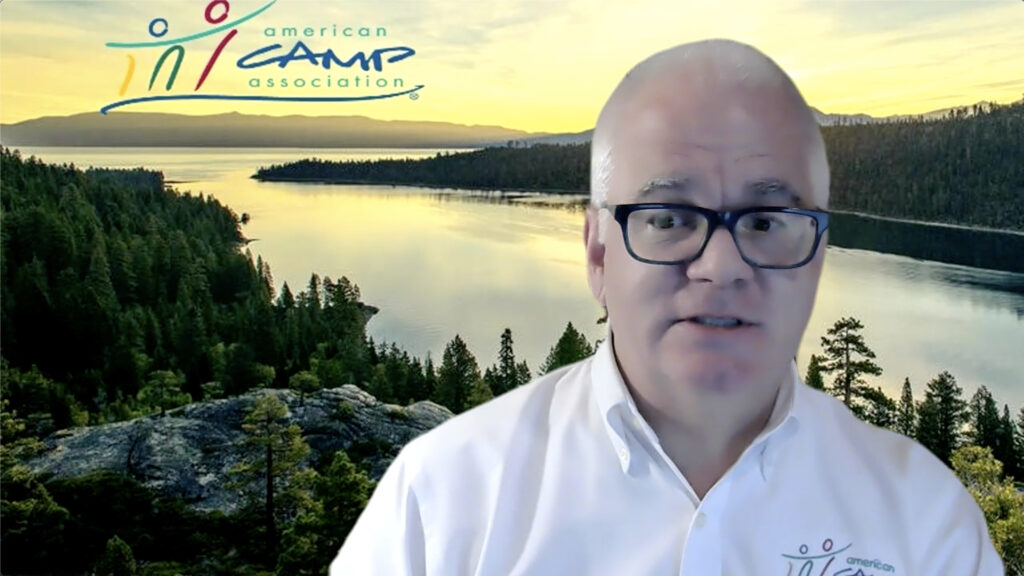24th Meeting of Japanese Camps. A Series of 4 Online Meetings
Theme: “Why don’t you camp from now on?”
The 24th Meeting of Japanese Camps, held in 2020, took the form of four online meetings, where research papers were presented. Specifically, at the 4th meeting, that took place on November 14th 2020, special speeches were delivered by:
John Jorgenson (Past ICF President)
Jeff Bradshaw (Past CCA President / ICF Vice President)
Ruth Feng (CEO of Jingle International Education / ICF Board Member)
Tom Rosenberg (current chairman and CEO of the American Camp Association)
Masako Harigaya, ICF Board Member from Japan and former NCAJ President, invited the above-mentioned speakers to participate at this online event, to create some interaction with people from overseas.
Some participants said that the speeches were so moving that they were brought to tears.
Our Japanese speaking ICF members can access some of these research papers presented, and a collection of abstracts in the Resource Library of ICF Connect (research papers soon to be uploaded).
The 24th Camp Meeting Japan Online
Special Speeches by International Guest speakers
-Ideas and Encouragement from International Camp Friends-
Speakers
John Jorgenson (Past President of ICF)
Jeff Bradshaw (Vice President of ICF / Past President of Canadian Camping Association)
Tom Rosenberg (President and CEO of the American Camp Association)
Ruth Feng (CEO of Jingle International Education / Board Member of ICF)
Feedback from the participants
About 80% were either [Very satisfied] or [Satisfied].
Some of their comments included:
-
Each speaker’s story was thought-provoking and wonderfully inspiring to people who are involved in camps. I realized that we need to work together hand in hand with camp friends around the world and we need to convey the value of camping to everyone.
-
“Each child is important”, “listen to the inner voice and the little voice”, and “things that children need”, etc. These words impressed me the most. It was very empowering and gave me the opportunity to learn about the initiatives and ideas abroad. Because I usually work with children, this also gave me an opportunity to learn about the view of children abroad.
-
I was able to learn about global thinking and insights about different initiatives.
-
It was very good to see not only the situation in each country, and speakers used polite and warm words to convey their message about where the camping world should head towards the future.
-
I could clearly understand the connection between NCAJ and ICF.
The 24th Camp Meeting in Japan
National Camping Association of Japan (NCAJ)
The 24th Camp Meeting in Japan, the annual research forum of NCAJ, was held in a series of four sessions from June to December 2020. It was entirely an online event because of COVID-19.
This year, due to the effects of COVID, we were unable to hold camps across the board, so we decided on a theme for each session and discussed our opinions on the future of camps after COVID.
| theme | contents | |
| June 6th | How can we make camps work? | Introduction of various initiatives in Japan and abroad |
| July 4th | How are you going to camp this summer? | Discussions to solve not only COVID but also social issues and challenges surrounding camps. |
| September 30th | How did you run your camp this summer? | Reports on camps that some NCAJ members or organizations have done this summer. |
| November 14th | How do you think we should go about running camps from now on? | Special keynote speeches by international guests
Research presentations and workshops |
Session 1
The first session was on the theme of “How can we make camps work?” Several speakers introduced various initiatives in Japan and abroad. In Japan, the Girl Scouts, Boy Scouts, YWCA, YMCA, and NCAJ jointly issued a statement. The objectives of this statement were to resume activities in nature for youth under the current circumstances and to curb aversion, discrimination, and prejudice caused by anxiety and fear of COVID. Several nature schools, such as the Japan Outdoor Network, cooperated and requested the government to provide financial support and to disseminate the guidelines. Outlining the efforts of ACA, AORE, and AEE were introduced as cases from overseas.
Session 2
In the second session, participants discussed how to tackle not only the COVID problem but also social issues and challenges surrounding camps. Here are some of the comments from the participants:
- I think it would be better to take the situation of not being able to camp due to COVID-19 as an opportunity and do what we had not been able to do before.
- I would like to take on new challenges as a recharging period, while adapting to COVID-19 rather than fighting against it.
Session 3
In the third session, under the theme of “How did you run your camp this summer?”, NCAJ members and organizations reported on the camps that they had done.
Session 4
And in the fourth session, we had some workshops, research presentations, reports of practices, symposiums, and special keynote speeches by international guests. Guest speakers were invited from ICF and ACA. There were four of them: John Jorgenson, past President of ICF; Jeff Bradshaw, current Vice President of ICF; Ruth Feng, ICF Board Member; and Tom Rosenberg, President, and CEO of ACA.
John Jorgenson:
Jorgi strongly reminded us that camp education fosters the ability to address and solve not only the Corona crisis but also many other serious social and environmental problems. Camps give children the motivation to develop themselves into the person they want to be and the ability to change for the better. I was able to reaffirm once again that our activities to provide camps are wonderful. This speech was the culmination of what he has embodied at ICF, and it is very valuable as a guide for many camp leaders.
Jeff Bradshaw:
We could hear from Jeff how COVID was gradually hitting the Canadian camps and that there were many ideas and measures to deal with it.
Camps, Government, and the participants worked together on this issue, but above all, I believe that the culture of “Canadian children grow up in camps” helped them to overcome this crisis. Camps will be a stronghold for everyone for a long time to come.
Ruth Feng:
She was asked to give a speech in Chinese. The organizers wanted her to speak her mind in her own language.
It was interesting to note that some organizations took stronger measures to conduct camps under COVID and put their programs online, while others worked on strengthening their own ability to provide better activities after the pandemic. It was also interesting that school-based activities were promoted during this situation.
The fact that online training activities or PR activities have different effects and advantages than face-to-face activities has been a hot topic in Japan as well, but China seems to be ahead of the curve in this area.
Tom Rosenberg:
NCAJ has referred to the translated manual on COVID countermeasures presented by ACA and made it available to our members. Tom gave the participants a lot of information at that time, and he is going to send a summary of ACA’s good practices in the US in the future as well. This speech was delivered to the participants in advance of that. Tom reported that by partnering with an environmental health specialist, they were able to implement safe camps. The organizers thought that it was wonderful that the value of the outdoors, nature, was reaffirmed in the process.
